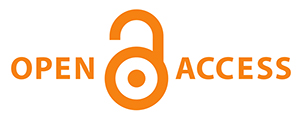AN ASSESSMENT OF THE RELATIONSHIP BETWEEN CORONAVIRUS ANXIETY OF BREASTFEEDING MOTHERS AND THEIR BREASTFEEDING SELF-EFFICACY
Keywords:
anxiety, breastfeeding, COVID-19, self-efficacyAbstract
Declared a pandemic all over the world, COVID-19 is an important public health problem. During this time, it is important for breastfeeding mothers to feed their babies with breast milk. The effect of the infection on pregnant women and the fetus is not known completely, and there is not sufficient data about the breastfeeding period. The study aims to assess the relationship between coronavirus anxiety of mothers breastfeeding their babies and their breastfeeding self-efficacy. The study did not employ any sampling methods. 432 mothers appropriate to the study criteria, who were reached online between January 2021 and March 2021, who agreed to participate in the study, and who had 0-6-month-old breastfeeding babies were included in the study. The study data was collected using the Introductory Information Form, the Coronavirus Anxiety Scale (CAS), and the Breastfeeding Self-Efficacy Scale (BSES). SPSS 22.0 package program was used in data analysis. The mean age of participating mothers was 27,18±5,44.According to the analysis results, there was a statistically significant relationship between age, educational status, income level, and breastfeeding with only breast milk, and BSES. There was also a statistically significant relationship between educational status, month interval of the baby, planned pregnancy, and impregnation from treatment, and the CAS (p <0.05). In addition, a significant relationship was revealed between the first breastfeeding time of the participants, the frequency of breastfeeding during the day, having problems with breastfeeding, anxiety about infecting the milk, having COVID-19 and breastfeeding status during this period, and BSES (p <0.05). The study findings revealed that there was a statistically significant relationship between CAS and having breastfeeding problems, fear of getting the virus, having COVID-19, and need for psychological support during the pandemic (p <0.05). In the study that determined a significant negative relationship between BSES and CAS (r:-0.134, p=0.005), mothers did not breastfeed their babies at the expected level for the first six months, and mothers who had covid-19 experienced uncertainties regarding the disease passing to the breast milk.





